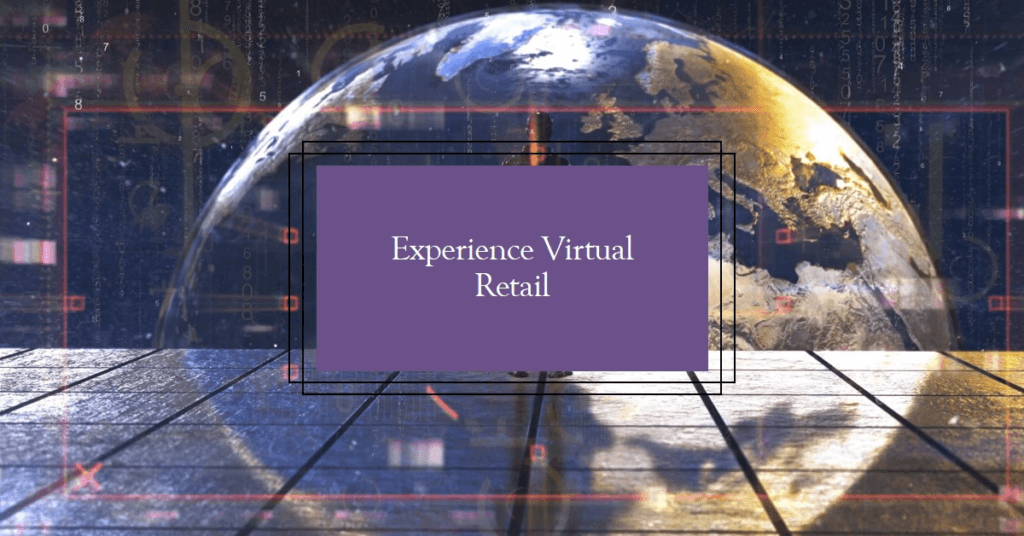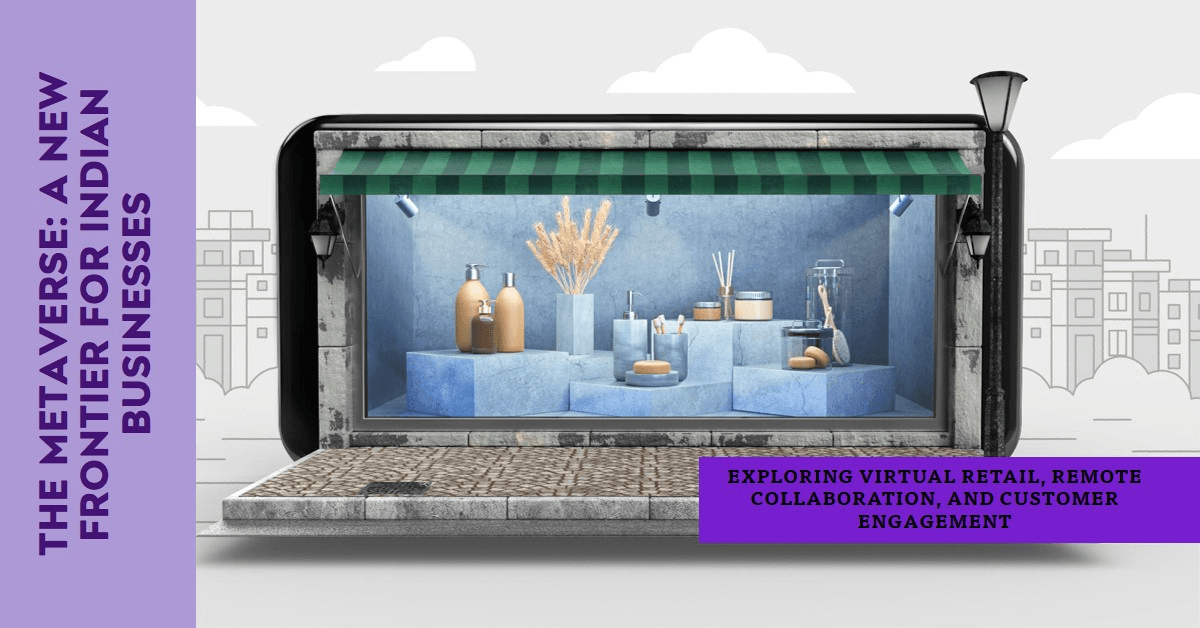The concept of the metaverse, a virtual space where people can interact with each other and digital objects in real-time, is gaining rapid traction across the globe. In India, this digital revolution is reshaping the way businesses operate, with industries from retail to education and healthcare jumping onto the metaverse bandwagon. Indian companies, both large and small, are beginning to recognize the potential of this new virtual landscape and are exploring innovative ways to integrate the metaverse into their business models. From virtual retail stores to immersive customer engagement and remote collaboration, the metaverse is poised to transform the Indian business ecosystem.
This article explores the impact of the metaverse on Indian businesses and how companies are leveraging this new frontier to enhance their operations, expand their customer base, and boost productivity.
What is the Metaverse?
The metaverse can be described as an interconnected network of virtual worlds that merge augmented reality (AR), virtual reality (VR), and blockchain technologies. It offers users immersive experiences where they can engage with others, shop, attend events, or even work in a virtual environment. Essentially, the metaverse blurs the lines between the physical and digital worlds, providing new opportunities for businesses to reach customers, collaborate with employees, and streamline operations.
While the metaverse is still in its early stages, companies around the world are rapidly adopting metaverse technologies to create more interactive and engaging experiences for consumers and workers alike.
The Growth of the Metaverse in India
India, with its booming tech sector and rapidly growing digital economy, is well-positioned to be a major player in the metaverse. With over 800 million internet users and one of the world’s largest markets for mobile devices, Indian businesses have the infrastructure and potential to lead the charge in integrating the metaverse into everyday life.
According to a report by Ernst & Young, the global metaverse market is projected to reach $800 billion by 2024, and India is expected to be a key contributor to this growth. Indian companies, especially in sectors like retail, real estate, entertainment, and technology, are embracing the metaverse as a way to differentiate themselves in an increasingly competitive market.
Virtual Retail: A New Shopping Experience

The retail industry in India is experiencing a significant shift with the integration of the metaverse into its operations. Virtual retail is becoming a buzzword in the industry, and Indian companies are leveraging this technology to provide an immersive shopping experience that goes beyond the limits of traditional e-commerce.
1. Creating Virtual Stores and Showrooms
In the metaverse, customers can visit virtual stores or showrooms, interact with 3D models of products, and even try on virtual clothing or accessories before making a purchase. This offers a more engaging shopping experience compared to traditional online shopping, where customers only see static images of products.
Major Indian retail brands such as Tata CliQ, Reliance Retail, and Flipkart are exploring the potential of the metaverse to build virtual showrooms where customers can browse products in an immersive environment. These virtual stores provide shoppers with a more personalized experience, allowing them to virtually “try before they buy” and explore products in a realistic, 3D space.
Furthermore, the metaverse offers an opportunity for Indian retailers to overcome geographical barriers, reaching customers in remote areas or international markets where they may not have a physical presence. By creating virtual stores, brands can tap into a global customer base, offering a seamless shopping experience that is accessible from anywhere in the world.
2. Enhancing Customer Engagement
In the metaverse, businesses can offer more than just products—they can offer experiences. For example, Raymond, a leading Indian textile company, recently launched a virtual fashion show where users could attend in the metaverse and interact with models showcasing their latest collection. Such events foster deeper customer engagement, driving brand loyalty by creating memorable, interactive experiences that go beyond mere transactions.
The metaverse also enables businesses to gather valuable data on customer preferences, behaviors, and feedback in real-time. Through analytics tools embedded in the metaverse, companies can track user interactions and optimize their virtual stores accordingly, ensuring that the shopping experience is continuously improving.
Remote Collaboration: Redefining the Workplace in the Metaverse
The COVID-19 pandemic has dramatically shifted how businesses operate, with remote work becoming the new normal for many industries. While video conferencing tools like Zoom and Microsoft Teams have been vital for enabling remote collaboration, the metaverse promises to take this a step further by offering immersive virtual office spaces that closely mimic real-world interactions.
1. Virtual Offices and Meeting Rooms
Indian companies are increasingly exploring the use of the metaverse for remote collaboration. In virtual office environments, employees can meet in 3D avatars, engage in face-to-face discussions, and even host conferences or presentations in a virtual setting. The sense of “presence” in the metaverse—where participants feel as though they are physically in the same room—fosters better communication and collaboration than traditional video calls.
Startups like NextMeet, an Indian virtual collaboration platform, are developing metaverse-based tools that provide businesses with immersive virtual environments for remote work. These platforms enable teams to work together from anywhere in the world, enhancing productivity and reducing the need for travel.
Large corporations like TCS (Tata Consultancy Services) are also experimenting with virtual workspaces in the metaverse. TCS has launched its own metaverse platform, where employees can interact with colleagues, attend meetings, and even socialize in virtual settings. This virtual collaboration not only improves team engagement but also offers a more dynamic and innovative way to work.
2. Training and Development in the Metaverse
The metaverse also offers businesses a unique opportunity to enhance employee training and development. Virtual reality (VR) simulations can be used for onboarding, technical training, and skill-building exercises, allowing employees to learn and practice in a risk-free, immersive environment.
Companies like Infosys and Wipro are exploring the use of VR for employee training in the metaverse. Employees can participate in virtual workshops, attend training sessions, and collaborate on projects with colleagues, all while interacting with realistic 3D models and simulations. This method of training not only increases engagement but also improves knowledge retention by providing hands-on, experiential learning.
Customer Engagement: A New Era of Interaction
One of the most significant ways in which the metaverse is impacting Indian businesses is by revolutionizing customer engagement. The metaverse allows companies to create highly interactive and immersive experiences that go beyond traditional marketing and customer service strategies.
1. Gamification and Brand Engagement
Gamification in the metaverse is quickly becoming a popular strategy for Indian businesses to engage customers. By creating branded virtual environments, companies can offer customers unique experiences, such as participating in virtual games, treasure hunts, or brand-related challenges. These gamified experiences help companies build stronger emotional connections with customers, driving brand loyalty and customer retention.
For example, Mahindra Group, a major Indian conglomerate, has launched several gamified experiences in the metaverse to engage customers with its automotive and real estate brands. Users can participate in virtual test drives, explore Mahindra’s latest vehicle models in 3D, and even attend virtual events related to Mahindra’s sustainable living projects.
2. Virtual Events and Product Launches
The metaverse offers a new frontier for hosting virtual events and product launches. Indian companies are increasingly using the metaverse to unveil new products, host concerts, or celebrate brand milestones. These virtual events can be attended by thousands of people from around the world, offering businesses an unprecedented opportunity to reach a global audience.
For example, Reliance Jio hosted a virtual concert in the metaverse to promote its JioFiber services. The concert featured popular Indian artists, and users could attend the event as avatars, interact with other attendees, and even purchase JioFiber packages directly from the virtual environment.
Hosting virtual events in the metaverse provides a more immersive and interactive experience for customers, compared to traditional webinars or live streams. It also enables businesses to create memorable brand experiences that leave a lasting impression on customers.
Challenges and the Future of the Metaverse in India
While the metaverse offers significant opportunities for Indian businesses, it also comes with several challenges. The high cost of VR and AR devices, lack of digital infrastructure in rural areas, and concerns around data privacy and security are some of the barriers that need to be addressed for widespread adoption of the metaverse in India.
Despite these challenges, the future of the metaverse in India looks promising. As more businesses experiment with virtual environments and technologies become more accessible, the metaverse is likely to become a core part of how Indian companies operate, collaborate, and engage with customers.
Indian tech companies and startups are expected to play a leading role in the development of metaverse solutions, driving innovation in sectors like education, healthcare, and entertainment. Additionally, with the Indian government’s push toward digital transformation and initiatives like Digital India, the metaverse has the potential to revolutionize industries across the country.
Conclusion: The Metaverse as a Catalyst for Indian Business Transformation
The integration of the metaverse into Indian businesses is opening up new avenues for growth and innovation. From virtual retail stores to immersive customer engagement and remote collaboration, the metaverse is changing the way companies operate and interact with customers and employees.
As more businesses in India embrace the metaverse, we are likely to see even greater developments in how Indian companies conduct business in a virtual world. The metaverse offers Indian businesses a unique opportunity to redefine their strategies, enhance customer experiences, and stay ahead in a rapidly evolving digital landscape.
To stay updated on the latest trends in the metaverse and its impact on Indian businesses, explore more articles on EpicInfinite. For a deeper dive into virtual collaboration, read about Infosys‘s virtual reality solutions here.
By utilizing the metaverse effectively, Indian businesses can ensure they remain at the forefront of technological innovation and continue to thrive in an increasingly competitive global market.










